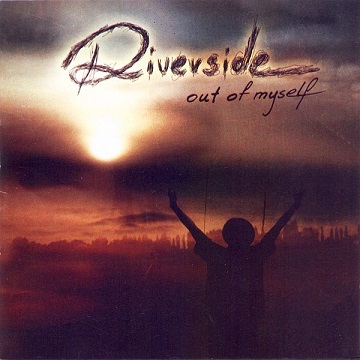The beginning - 81%
Debut albums that managed to be more or less successful can be generally divided into two groups – the first one are the ones that were noticed because of being extraordinary in some way, even if inconsistent; the other one are the albums that walk the same path as many bands before them, without trying to be revolutionary, but are simply really good as they are. They're the ones that don't surprise anyone too much, but are very enjoyable to listen to and the realisation is on a very high level. Out of Myself certainly belongs to the latter group – the band doesn't hide their influences throughout the album, but it's the way they handled it that matters. The result is a release that holds together very well as a whole album and not a bunch of songs, doesn't have “debut album – be patient” written all over it, and shows that they knew, more or less, what they were doing.
The main influences here were apparently Pink Floyd, Anathema and Marillion, giving a sound based on melodic, melancholic guitar leading the whole album. There are some occasional heavier riffs here and there, sometimes an acoustic guitar takes over – like in I Believe – but mostly it's the lead guitar that forms the core of the music. Keyboards complement the guitar with various soundscapes, adding to the atmosphere, while the rhythm section is rather subtle throughout most of the album, creating a backbone for everything else (although I need to point out you may find out the drumming is really good, if you decide to focus on it). The main exceptions are the title track, which is the only heavier, more straightforward song here, and the two instrumentals called Reality Dream I & II, which go in a more progressive metal direction (though they also contain the trademark melodic parts). The closing track, OK, is a venture in a different direction, dropping the guitars and giving the song a much more jazzy feeling with a saxophone and slow, quiet percussion.
The strength of the album, however, is that even though it's not very diverse (at least much less than the later albums), each song holds well on its own and they don't blend together. The greatest highlight is the opener, The Same River – the closest to a progressive rock epic with 12 minutes of length, perfectly leading into the atmosphere of the album (starting with the nearly legendary Riverside sample of tuning a radio), written with feeling and finesse, perfectly crafted from four parts, each of them sounding quite differently from each other and defining the mellow, melodic style of the band. The Curtain Falls is another excellent track, easily the saddest and the most melancholic, with the most visible Pink Floyd influence – the guitar shines here more than anywhere else with a particularly memorable, fading note at the end. Finally, the third highlight is I Believe, which is one of the best acoustic ballads I've ever had a chance to hear – it had probably been done many times before, but Riverside handled it perfectly, creating a short, rather minimalistic song which is full of feeling and emotion (actually, there are three versions of the song – the second one is more piano-oriented, while the third one uses bass instead of acoustic guitar, and both have a very nice guitar solo at the end – but even though they're also great, I still find the album version to be the best).
Speaking about emotion... the vocals are a great highlight of Out of Myself. Mariusz Duda sings here mostly with his calm, soft voice which has already become one of the more recognisable ones of modern progressive music – for a reason, because he's capable of singing with incredible emotion when needed, but also with a very cold, detached voice when it's necessary. However, he's not afraid to do something entirely different, and on Out of Myself and Loose Heart he manages to sing with a really powerful, angry voice, maybe even with a slight hint of growling, and it actually manages to work perfectly. Also, there are moments of his “wordless singing” technique on the album, using the voice as another instrument – however, this is just the beginning, and it's a skill that was used to a much greater extent on the later albums.
The most ambitious idea is, however, the whole idea of the Reality Dream trilogy, this being part one. Lyrically, it's definitely the simplest Riverside work – we begin here with a person trying to find his place in the same relationship for the second time (hence “The Same River”), and failing for the second time... It doesn't really sound like the most original idea I guess; the lyrics are interesting and allow for plenty of emotion in the vocals, but still it feels rather obvious that this is really just the beginning – a prologue for something larger, deeper and more difficult to unfold. This ties in with the music, which stays mostly in the safe progressive rock territory, resulting in an album which maybe won't make you incredibly impressed, but will be a very pleasant experience nonetheless (unless you expect this album to be heavy – if I still need to make it clear: this album is around 20% metal, and definitely the band's calmest full-length to date). It's the kind of album that's perfect for relaxing and detaching from the earth a bit – it works perfectly as such, and you may end up returning to it more often than you think. It's beautiful and melancholic, with few dark shades or very strong emotions. However, part two and three will be a different thing entirely...

